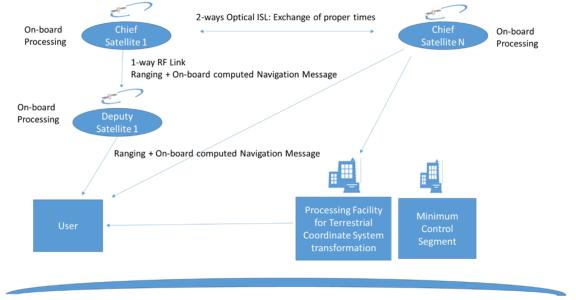LIFELINE

The aim of the LIFELINE project was to perform a feasibility study of a Relativistic Positioning System. Nowadays, all GNSS in operation are based on Newtonian physics and rely on global reference frames fixed to Earth. Relativistic effects are treated as deviations that need to be corrected. A practical RPS would consist, for example, in a constellation of satellites, each one broadcasting not only its General Relativity coordinates (proper times or other observables) at emission but also the coordinates that it receives from the other satellites. RPS establishes inherently a local reference frame based only on the dynamics of the satellites and, as a consequence, it is completely independent of a terrestrial frame. Several theoretical concepts have been proposed in previous activities for the use of Relativistic PNT System (RPS) and the required relativistic reference frames. The objective of LIFELINE is to identify the benefits of (RPS) and study the feasibility of exploiting those concepts into a practical implementation of a PNT system. In particular, such feasibility should bring RPS theoretical concepts, into a practical high-level system architecture together with the identification of required supporting critical technologies for its implementation (e.g. on-board atomic clocks, inter-satellite links)
